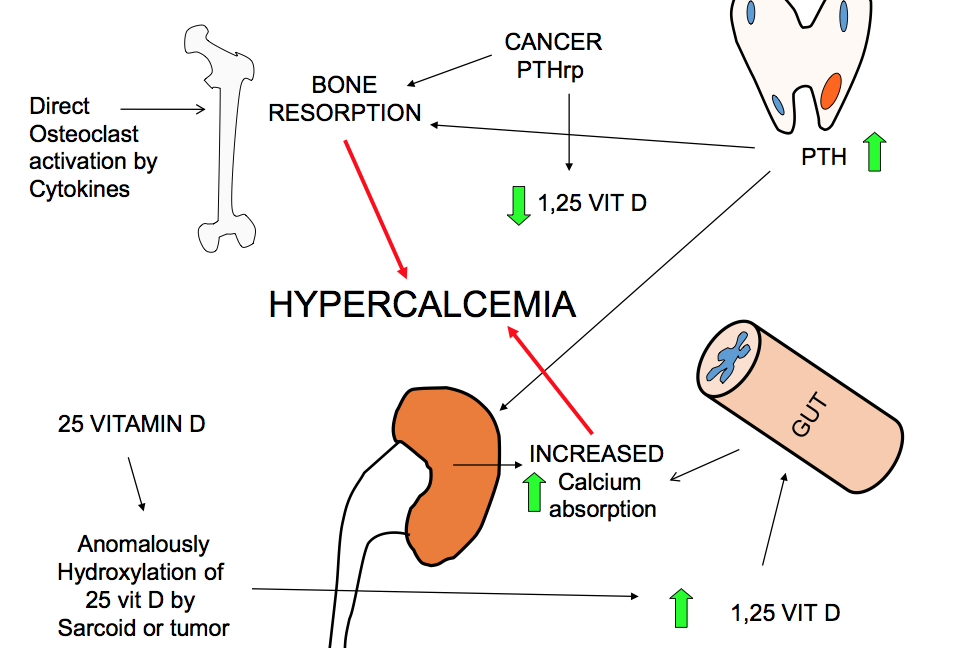Conditions We Treat
Below are details on the different conditions we treat at Medical Specialty Group of South Florida.
Diabetes

Diabetes is a life-long disease that affects the way your body handles glucose, a kind of sugar, in your blood.
- Type 1 Diabetes: The exact cause of type 1 diabetes is unknown. About 1.25 million Americans have type 1 diabetes and an estimated 40,000 people will be newly diagnosed each year in the U.S. It is characterized by a near complete or complete lack of insulin production by the pancreas. Instead of being transported into your cells, sugar builds up in your bloodstream.
- Type 2 Diabetes: The most common type of diabetes in the United States. In prediabetes, which can lead to type 2 diabetes, and in type 2 diabetes, your cells become resistant to the action of insulin, and your pancreas is unable to make enough insulin to overcome this resistance. Instead of moving into your cells where it’s needed for energy, sugar builds up in your bloodstream.
Any and all type of diabetes can potentially lead to complications. However, those risks of developing complications of diabetes can be lowered by consulting with an Endocrinologist to help you achieve adequate diabetic control.
Complications may include diabetic neuropathy, diabetic kidney disease, diabetic eye disease, and vascular disease leading to increased risk for strokes, heart attacks, and peripheral vascular disease.
Thyroid Disorder

The thyroid gland manufactures hormones that regulate your body’s metabolism.
Several different disorders can arise when your thyroid produces too much hormone (hyperthyroidism) or not enough (hypothyroidism). Thyroid hormones control the rate of many activities in your body. These include how fast you burn calories and how fast your heart beats. All of these activities are your body’s metabolism.
Thyroid problems include:
- Goiter – enlargement of the thyroid gland
- Hyperthyroidism – when your thyroid gland makes more thyroid hormones than your body needs
- Hypothyroidism – when your thyroid gland does not make enough thyroid hormones
- Thyroid cancer
- Thyroid nodules – lumps in the thyroid gland
- Thyroiditis – swelling of the thyroid
Pituitary Conditions

Your pituitary gland is a pea-sized gland at the base of your brain. The pituitary is the “master control gland” – it makes hormones that affect growth and the functions of other glands in the body.
With pituitary disorders, you often have too much or too little of one of your hormones. Injuries can cause pituitary disorders, but the most common cause is a pituitary tumor. These tumors are fairly common in adults. They are not brain tumors and are almost always benign (that is, not cancer). In fact, cancerous tumors of this sort are extremely rare.
There are two types of tumors—secretory and non-secretory. Secretory tumors produce too much of a hormone normally made by the pituitary, and non-secretory tumors do not. Both types of tumors can cause problems if they are large and interfere with the normal function of the pituitary gland and/or nearby structures in the brain.
Schedule an appointment with Dr. Shapse today to learn more.
Osteoporosis

Osteoporosis is a bone disease that occurs when the body loses too much bone, makes too little bone, or both. As a result, bones become weak and may break from a fall. Your bones become fragile and break easily, especially the bones in the hip, spine, and wrist. In the United States, millions of people either already have osteoporosis or are at high risk due to low bone mass.
Risk factors include:
- Getting older
- Being small, thin & smoking
- Having a family history of osteoporosis
- Taking certain medicines
- Being a white or Asian woman
- Having a low bone density
- Some diseases such as rheumatoid arthritis also raise the odds that you’ll get osteoporosis.
If you’re 50 or older and have broken a bone, ask Dr. Shapse about our in-house bone density test.
Hypercalcemia / Parathyroid Disorders

Hypercalcemia, or elevated blood level of calcium, is commonly found on routine blood tests. It is most often caused by overactivity in the four tiny glands in the neck (parathyroid glands) or from cancer.
Calcium is an important mineral in our bodies throughout our lifetime for bone growth, bone strength, maintaining proper hormone levels and optimal functioning of nerves, muscles and the brain. The calcium level is usually very carefully controlled by the body. However, certain medications and conditions can result in high blood calcium levels.
Hypercalcemia can be caused by more than 25 separate diseases, several medications, and even dehydration. Primary hyperparathyroidism and various kinds of cancers account for the greatest percentage of all patients with hypercalcemia.
Schedule an appointment with Dr. Shapse today to learn more.
Low Testosterone

Testosterone may be the most notorious of hormones. It conjures up thoughts of muscles and masculinity. In fact, testosterone does fuel sex drive and muscle mass, but it also regulates mood and bone strength.
Over time, low testosterone may cause a man to lose body hair, muscle bulk, and strength and to gain body fat. Chronic (long-term) low testosterone may also cause weak bones (osteoporosis), mood changes, less energy, and smaller testes.
Adrenal Conditions
Located at the top of each kidney, the adrenal glands produce hormones that help the body control blood sugar, burn protein and fat, react to stressors like a major illness or injury, and regulate blood pressure. Two of the most important adrenal hormones are cortisol and aldosterone.
- Cortisol is a steroid hormone: Think of cortisol as nature’s built-in alarm system. It’s your body’s main stress hormone. It works with certain parts of your brain to control your mood, motivation, and fear. cortisol plays an important role in a number of things your body does. For example, it:
- Manages how your body uses carbohydrates, fats, and proteins
- Keeps inflammation down
- Regulates your blood pressure
- Increases your blood sugar (glucose)
- Controls your sleep/wake cycle
- Boosts energy so you can handle stress and restores balance afterward
- Aldosterone is a steroid hormone. Its main role is to regulate salt and water in the body, thus having an effect on blood pressure. Activation of this system occurs when there is a decrease in blood flow to the kidneys following a loss of blood volume or a drop in blood pressure
Too much Cortisol can produce Cushing syndrome. Cushing disease is a condition in which the pituitary gland releases too much adrenocorticotropic hormone (ACTH). This can happen for a variety of reasons. The most common cause is overuse of corticosteroid medications.
Addison’s disease, also called adrenal insufficiency, is an uncommon disorder that occurs when your body doesn’t produce enough of certain hormones. In Addison’s disease, your adrenal glands, located just above your kidneys, produce too little cortisol and, often, too little aldosterone.
Addison’s disease occurs in all age groups and both sexes and can be life-threatening. Treatment involves taking hormones to replace those that are missing.
Schedule an appointment with Dr. Shapse today to learn more.
Fatigue
Fatigue is a common symptom in many endocrine disorders, especially with diabetes and Hypothyroidism.
Fatigue is a lingering tiredness that is constant and limiting. With fatigue, you have unexplained, persistent, and relapsing exhaustion. It’s similar to how you feel when you have the flu or have missed a lot of sleep. In most cases, there’s a reason for the fatigue. It might be allergic rhinitis, anemia, depression, fibromyalgia, or some other health condition.
If you think that your fatigue may be caused by one or more of those conditions, schedule a visit with us.
New to MSG
[caption id="attachment_11676" align="alignnone" width="188"] MSG is an overall multi-specialty practice, now with both Endocrinology and Pulmonology.[/caption]
MSG is an overall multi-specialty practice, now with both Endocrinology and Pulmonology.[/caption]


